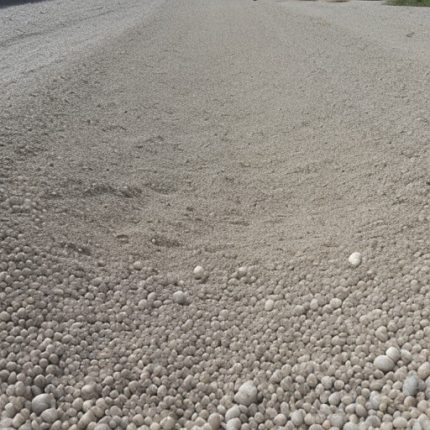$1,100.00
River rock is a type of rock that is typically found in or near rivers and streams. These rocks are known for their smooth, rounded appearance, which results from years of water erosion. Here are some key characteristics and descriptions of river rock:
Description
River rock is a type of rock that is typically found in or near rivers and streams. These rocks are known for their smooth, rounded appearance, which results from years of water erosion. Here are some key characteristics and descriptions of river rock:
Physical Characteristics:
- Shape: River rocks are usually smooth and rounded, often oval or circular in shape. The constant flow of water polishes the edges, making them less jagged than other types of rocks.
- Size: They come in a variety of sizes, from small pebbles to larger stones. Sizes can range from a few millimeters to several inches in diameter.
- Texture: The texture of river rocks is typically smooth due to the erosion process. Some might have slight grooves or marks, but generally, they have a polished feel.
- Color: River rocks can be found in a wide array of colors including shades of white, gray, black, brown, red, and even blue-green. The color variety is due to the different minerals present in the rocks.
- Composition: These rocks are often made from various types of stones such as granite, basalt, limestone, and quartzite, depending on the geological composition of the riverbed.
Uses:
- Landscaping: River rocks are popular in landscaping for creating visually appealing gardens, walkways, and water features. Their smooth texture and variety of colors add aesthetic value.
- Erosion Control: They are used in drainage systems and to control erosion around water bodies because of their durability and ability to stabilize soil.
- Decorative Features: River rocks are often used in aquariums, planters, and decorative vases. They are also employed in crafting and as natural decor elements in interior design.
- Construction: In some cases, river rocks are used in construction for building retaining walls, foundations, and even as a base material for roads and driveways.
Collection and Environmental Impact:
- Sourcing: River rocks are typically collected from riverbeds, streams, and other natural watercourses. It’s important to source them sustainably to avoid disrupting local ecosystems.
- Environmental Considerations: Over-harvesting river rocks can lead to negative impacts on the environment, such as habitat destruction for aquatic and riparian wildlife. Sustainable practices and regulations are crucial to mitigate these effects.
Maintenance:
- Cleaning: Over time, river rocks used in landscaping or decorative applications might gather dirt and debris. They can be cleaned using water and mild detergents.
- Replacement: Due to their durability, river rocks usually last a long time, but they might need occasional replacement if they become buried or displaced.
Aesthetic Appeal:
River rocks are valued for their natural beauty and the calming effect they can bring to outdoor and indoor spaces. Their unique shapes and colors can be used to create serene, nature-inspired designs.
In summary, river rocks are versatile, aesthetically pleasing, and practical materials commonly used in various applications due to their unique properties formed by natural water erosion processes.
Related products
-

lime sand 550$ Per Truckload with delivery (5 Tons Per Truck)
$550.00 Add to cart -

gravel – 500$ Per Truckload with delivery (5 Tons Per Truck)
$500.00 Add to cart -

Firewood 1200$ Per Truckload with delivery (2 full cords Per Truck)
$1,200.00 Add to cart -

Red Rubber Mulch 1,487 – 2000lbs (77cu.ft.) delivery included.
Read more


